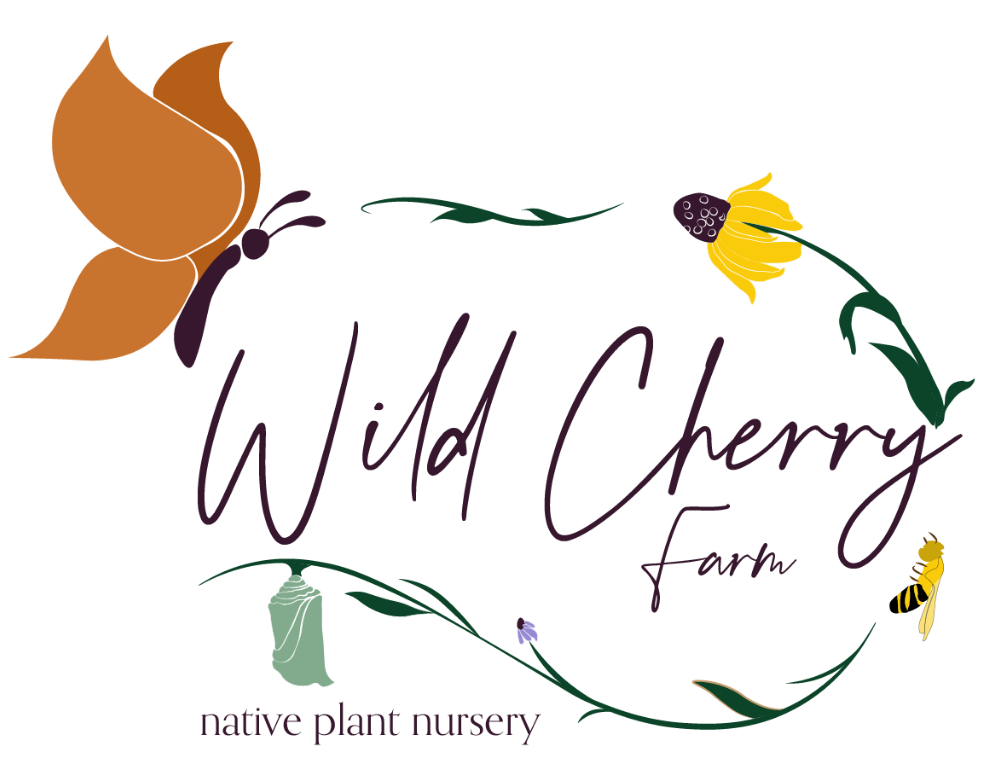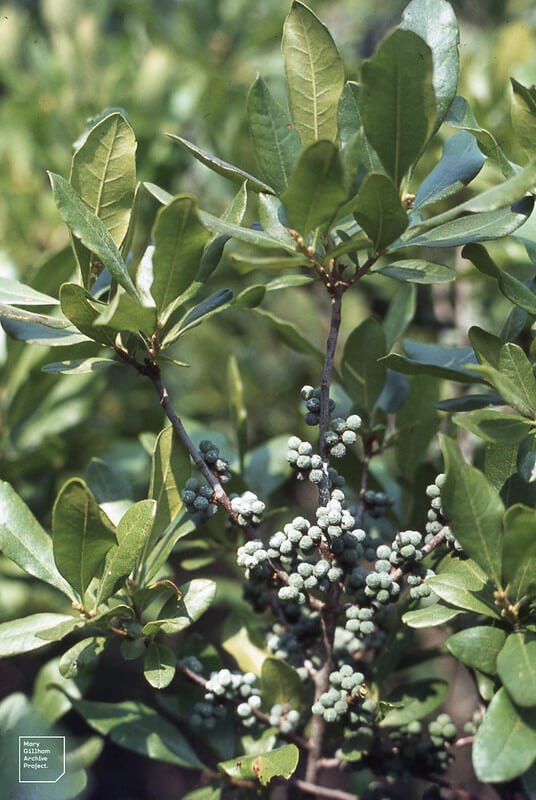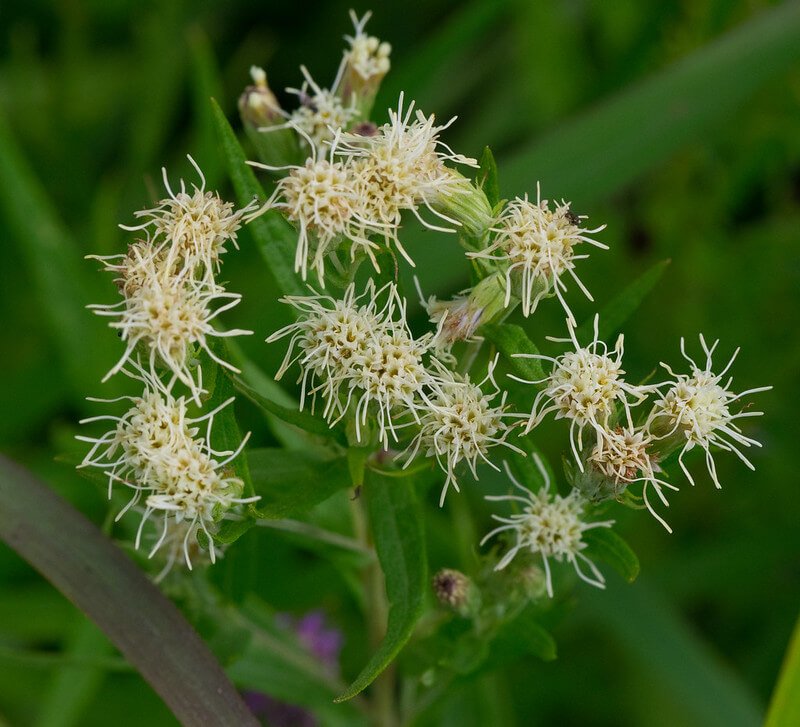Bayberry (Myrica pensylvanica)
I had a hard time finding information on the insect interactions with Bayberry. From what I can find, the berries are eaten by a variety of birds and is, apparently, a host plant for a variety of moths and bees (UM extension). It is included in the Audubon Society’s line of native plants for birds because migrating birds and game birds eat the energy-rich berries over winter (Audubon info). Bayberry is considered threatened in Michigan, so why not plant this aromatic shrub (mnfi.anr.msu.edu)? This is a dioecious shrub, so they are either male or female, thus, in order to get berries you will need both. Bayberry will sucker in the right conditions and deer seem to avoid it.
NOTE: This species is typically dioecious meaning male and female flowers are present on separate plants. These plants are UNSEXED - 'Unsexed' means the plants are not old enough to show male or female characteristics. A plant with male flowers is needed within 50 feet of a plant with female flowers for pollination and berry development, so be sure to place your plants within this range of each other.
Photo credit: Dr. Mary Gillham
I had a hard time finding information on the insect interactions with Bayberry. From what I can find, the berries are eaten by a variety of birds and is, apparently, a host plant for a variety of moths and bees (UM extension). It is included in the Audubon Society’s line of native plants for birds because migrating birds and game birds eat the energy-rich berries over winter (Audubon info). Bayberry is considered threatened in Michigan, so why not plant this aromatic shrub (mnfi.anr.msu.edu)? This is a dioecious shrub, so they are either male or female, thus, in order to get berries you will need both. Bayberry will sucker in the right conditions and deer seem to avoid it.
NOTE: This species is typically dioecious meaning male and female flowers are present on separate plants. These plants are UNSEXED - 'Unsexed' means the plants are not old enough to show male or female characteristics. A plant with male flowers is needed within 50 feet of a plant with female flowers for pollination and berry development, so be sure to place your plants within this range of each other.
Photo credit: Dr. Mary Gillham
I had a hard time finding information on the insect interactions with Bayberry. From what I can find, the berries are eaten by a variety of birds and is, apparently, a host plant for a variety of moths and bees (UM extension). It is included in the Audubon Society’s line of native plants for birds because migrating birds and game birds eat the energy-rich berries over winter (Audubon info). Bayberry is considered threatened in Michigan, so why not plant this aromatic shrub (mnfi.anr.msu.edu)? This is a dioecious shrub, so they are either male or female, thus, in order to get berries you will need both. Bayberry will sucker in the right conditions and deer seem to avoid it.
NOTE: This species is typically dioecious meaning male and female flowers are present on separate plants. These plants are UNSEXED - 'Unsexed' means the plants are not old enough to show male or female characteristics. A plant with male flowers is needed within 50 feet of a plant with female flowers for pollination and berry development, so be sure to place your plants within this range of each other.
Photo credit: Dr. Mary Gillham
Life Cycle: Perennial
Sun Exposure: Full, Partial
Soil Moisture: Medium, Dry
Height: 6-8 feet
Plant Spacing: 5-10 feet
Bloom Time: May
Bloom Color: Yellowish-green catkins
Advantages: Pollinator Favorite, Bird Favorite
Host:
Species of Concern: State Status: Threatened (legally protected). State Rank: Imperiled (mnfi.anr.msu.edu).





